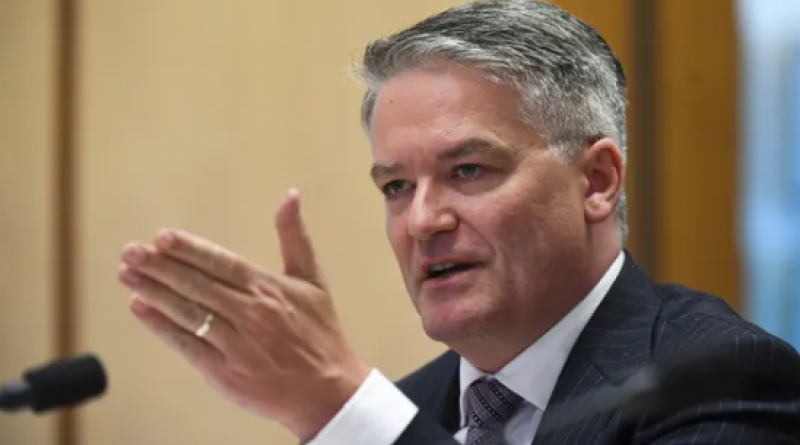Climate experts in dismay at choice of Mathias Cormann as OECD chief.

Critics say election of former Australian finance minister with ‘atrocious record’ sends a dangerous signal.
Climate experts have expressed dismay at the choice of Mathias Cormann, a former finance minister in an Australian government with a record of strong hostility to climate action, as secretary general of the Organisation for Economic Co-operation and Development (OECD), an international institution that advises rich countries on policy and poor countries on how to become wealthier.
Jennifer Morgan, the executive director of Greenpeace International, said: “We have little confidence in Cormann’s ability to ensure the OECD is a leader in tackling the climate crisis, when he has an atrocious record on the issue. If the OECD is to fulfil its mandate, it must confront the climate emergency, arguably the biggest social justice issue of our time.”
Nick Mabey, the chief executive of the E3G thinktank, said: “OECD countries have just sent a dangerous signal by appointing someone with a track record of dismantling climate policy to run their main advisory body. This appointment will lower pressure on the leaders of other international institutions to undertake radical reforms to tackle the climate crisis.”
Developing countries were particularly concerned. Saleem Huq, the director of the International Centre for Climate Change and Development in Bangladesh, said: “The appointment of a climate sceptic from Australia to head the OECD is very disappointing and will reduce the credibility of the OECD as an institution in the eyes of developing countries.”
The UK government was also sharply criticised for its role in backing Cormann’s election as it prepares to host UN climate talks in Glasgow this November.
Mohamed Adow, the director of the Power Shift Africa thinktank, said: “It’s terrible to see a politician with such a poor record on climate action getting the job of leading the OECD. What makes it worse is that apparently his appointment was backed by the UK, despite them [being] about to host the crucial Cop26 summit.”
Cormann opposed climate action on many occasions while a government minister between 2013 and 2020. He voted down motions to declare a climate emergency, called net zero targets “extremist”, “reckless” and “irresponsible”, spoke in favour of the coal industry and against wind energy, and was criticised for telling young climate strikers to “stick to school”.
Some climate experts, however, said Cormann could still carry on the OECD’s work on climate action despite his record. Some pointed privately to the World Bank, where the climate advocate Jim Yong Kim was replaced in 2019 by David Malpass, an adviser to Donald Trump with little previous enthusiasm for climate issues. Despite misgivings, the World Bank has retained a strong focus on climate action.
The climate economist Nicholas Stern said: “Cormann comes from a government in Australia which has often been ambiguous at best in its commitment to tackling climate change. [He] must show the necessary commitment right from the start of his tenure. The world must act now and the OECD must continue to lead.”
The OECD decision runs against the tide of recent appointments of senior figures to major international institutions. Officials with a track record of advocating strong climate action, many of them women, now lead several key organisations.
Kristalina Georgieva, formerly of the World Bank and European commission, is chief of the International Monetary Fund, where she has made the climate a focus. Christine Lagarde, the head of the European Central Bank, spoke of the urgent need for climate action as the UK launched Cop26 last year, and Odile Renaud-Basso took over last year at the European Bank for Reconstruction and Development, where she has pledged to push climate action forward.
The World Trade Organization is headed by Ngozi Okonjo-Iweala, a former Nigerian finance minister who has long taken a strong stance on the climate.
One of Cormann’s key actions while a government minister was to quash plans for carbon pricing. This stands in stark contrast to the man he has succeeded at the OECD, Ángel Gurría, who had been a prominent figure at international climate forums since his appointment in 2006.
In one of his last interviews as secretary general, Gurria told the Guardian: “The single most important intergenerational responsibility is to protect the planet. We are on a collision course with nature, and we have to change course for future generations; to protect biodiversity to stop it from being degraded; to protect soil; to protect lands and water; to protect the oceans … and put a big fat price on carbon.”
12 March 2021
The Guardian




